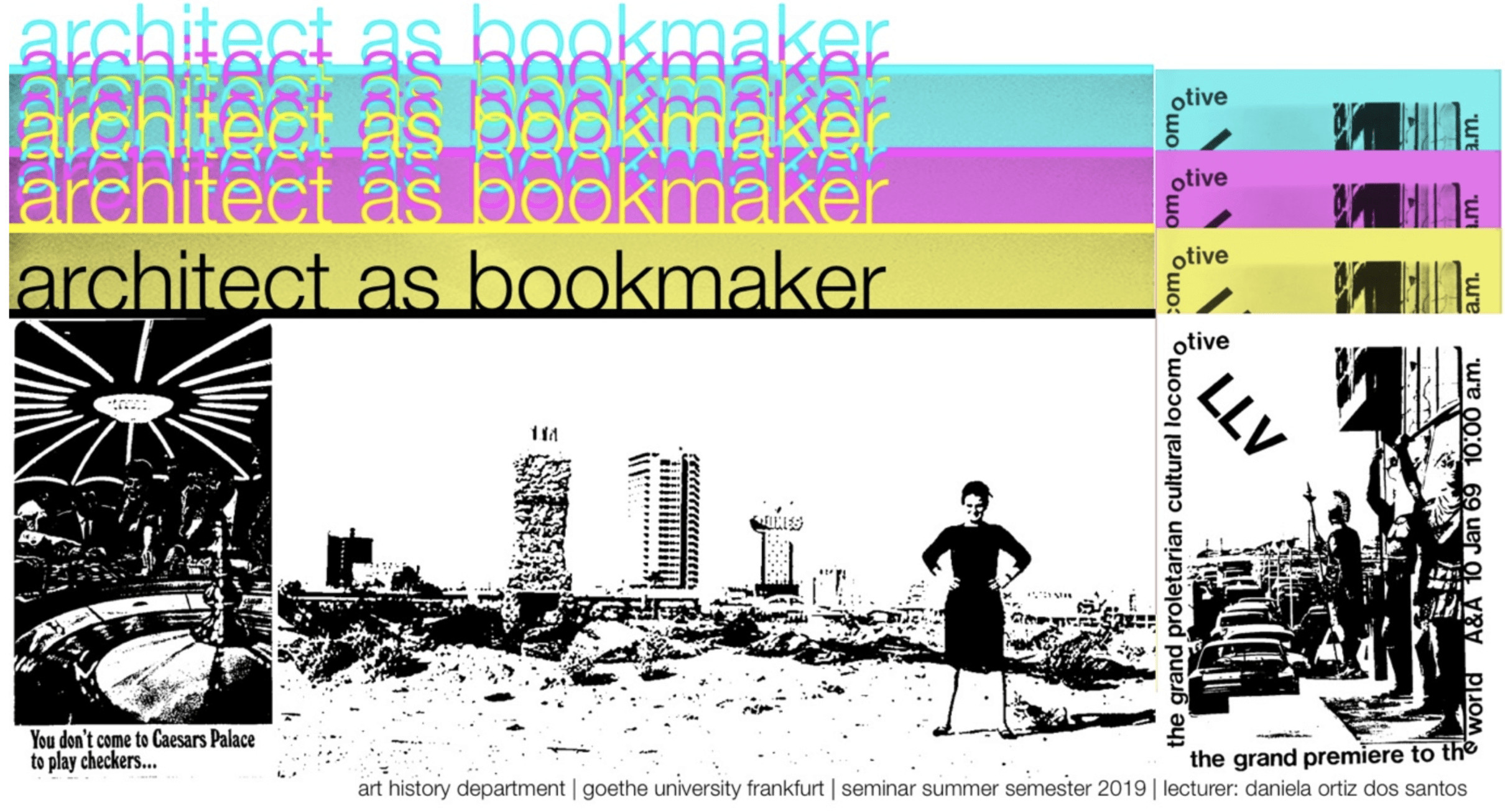Summer Semester 2019
• Goethe University Frankfurt am Main | Art History Department
Seminar
Architects as Bookmakers: Concepts, Contexts and Competing Visions
Daniela Ortiz dos Santos
Architects’ trips have often been an object of study for historians, who have examined the effects of these travels on their architectural practice. But there is one other type of voyage that has rarely been considered, and about which architects such as Swiss born Le Corbusier was indeed silent: throughout his life, Le Corbusier wrote almost fifty books and published more than two hundred articles besides executing seventy-nine architectural projects.
It is worth considering, then, that literary activity was part of Le Corbusier’s everyday life, and that this may have produced echoes in his other practices. Le Corbusier is here a good example to argue for the importance to intersect the building culture and the booking culture. This seminar does not focus on Le Corbusier. Instead, we will look at twentieth-century architects and architectural historians, whose writings and publications deeply affected the building culture, and whose idea of “a modern architecture” was not necessarily presented the same way.
The Deutsches Architekturmuseum will collaborate with us in this seminar and participants are expected to join the workshop The Building Culture and the Book Culture with DAM curator Oliver Elser and Dr. André Tavares from Lisbon. The workshop will deal with art historian Heinrich Klotz’s book Moderne und Postmodene (1987), his trips to the USA and exchanges with architects. The languages of the seminar are English and German. Participants are required to regularly attend the seminar, which is mainly divided in three parts:
Part 1. Examining architectural books through three concepts: “Anatomy”, “Archives” and “Archaeology”.
Part 2. Workshop in the DAM + two sessions = production of a collective outcome.
Part 3. Analysis of three books through the concept of “intertextuality”. Participants will be divided in three groups. Each group will focus on one book and will hold a presentation.
Instead of delivering a “Hausarbeit”, credit points will be granted to participants who have an active participation in the sessions and the workshop, collaborate to the production of a collective outcome (to be produced during the seminar hours) and join a group presentation.
